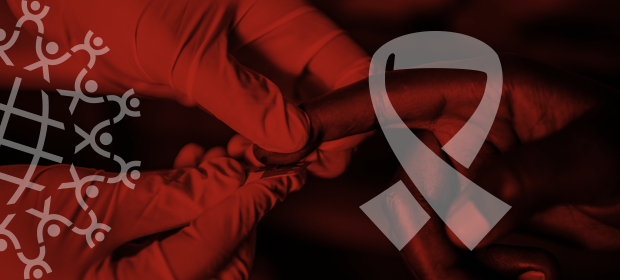Where We Work
See our interactive map


As the number of new HIV infections rises in South Sudan and the country struggles to provide high-quality health care during an ongoing civil war, IntraHealth International is partnering with the Ministry of Health and health workers to make better care available to more people.
In 2018, only 24% of people living with HIV in South Sudan knew their status and only 16% of people living with HIV were on treatment, according to UNAIDS. The epidemic is concentrated among certain groups that face barriers to health care and higher risks of infection, especially female sex workers, orphans, and vulnerable children. To identify and reach these key populations, IntraHealth uses data-driven strategies and creative approaches, such as:
In 2019, IntraHealth projects improved access to HIV services and quality of care and strengthened systems for better data collection and decision-making. A few examples include:
We reached 4,698 female sex workers and 3,183 members of priority populations with HIV services last year through our work on the Evidence to Action (E2A) Project. Our clinical outreach services included HIV testing, screening and treatment for sexually transmitted infections, adherence support counseling, reproductive health services, and care and psychosocial support services for survivors of sexual and gender-based violence.
We reached 66,150 people with HIV testing and counseling services last year, including pregnant and breastfeeding mothers, their partners, and children. Through our Strengthening the Capacity to Scale-up HIV Prevention, Care and Treatment Programs in South Sudan Project, 1,536 adults and children were newly initiated on antiretroviral therapy and, on average, viral suppression is at 75% among female clients and 79% among male clients.
IntraHealth prioritized HIV testing for mothers through continuous supportive supervision and partnering with mentor mothers to support HIV cases. We also worked with community volunteers and community-based civil society organizations to raise awareness and create demand for antenatal care services.
We deployed the country’s first electronic medical record system (OpenMRS) at Juba Teaching Hospital and helped roll out DHIS2 into 77 county health departments and 20 health facilities in 2019 through our project, Strengthening National Capacity for Integrated HIV/AIDS Health Data Collection, Use, and Dissemination in Support of an Evidence-based Response in South Sudan.
By establishing strong data systems like these, IntraHealth helps ensure the Ministry of Health has the data it needs to make crucial decisions, such as how and where to allocate health workers, where to make more services available, and where there are gaps in care.
To help make these systems sustainable, we trained 254 health workers on HIV data collection and reporting tools and 292 on using DHIS2. Now, health facility and county health staff know how to use data systems efficiently, which helps them improve services and strategically reach more key populations.
Through the E2A project, we helped fund the first-ever mayors’ advocacy workshop as part of engaging local government officials in South Sudan’s HIV response.
In collaboration with UNAIDS and the South Sudan AIDS Commission, the project helped bring together 18 mayors and 6 executive directors from city councils and municipalities across the county to address the structural barriers that members of key populations face in accessing health services. Together, they discussed their critical roles as leaders in strengthening the national HIV response and advocating to decriminalize HIV and AIDS interventions for key populations.
IntraHealth and South Sudan are working together to achieve the country’s 90-90-90 goals, wherein 90% of all people living with HIV know their HIV status, 90% of all people diagnosed with HIV receive sustained antiretroviral therapy, and 90% of all people receiving antiretroviral therapy will have viral suppression. Although the country is far from achieving those targets, we are working toward them together by strengthening the health workforce, building more robust data systems and training programs, and offering higher-quality care.
Evidence to Action is funded by the US Agency for International Development. Strengthening National Capacity for Integrated HIV/AIDS Health Data Collection, Use, and Dissemination in Support of an Evidence-based Response in South Sudan and Strengthening the Capacity to Scale-up HIV Prevention, Care and Treatment Programs in South Sudan are funded by the US Centers for Disease Control and Prevention and the President’s Emergency Plan for AIDS Relief (PEPFAR).



